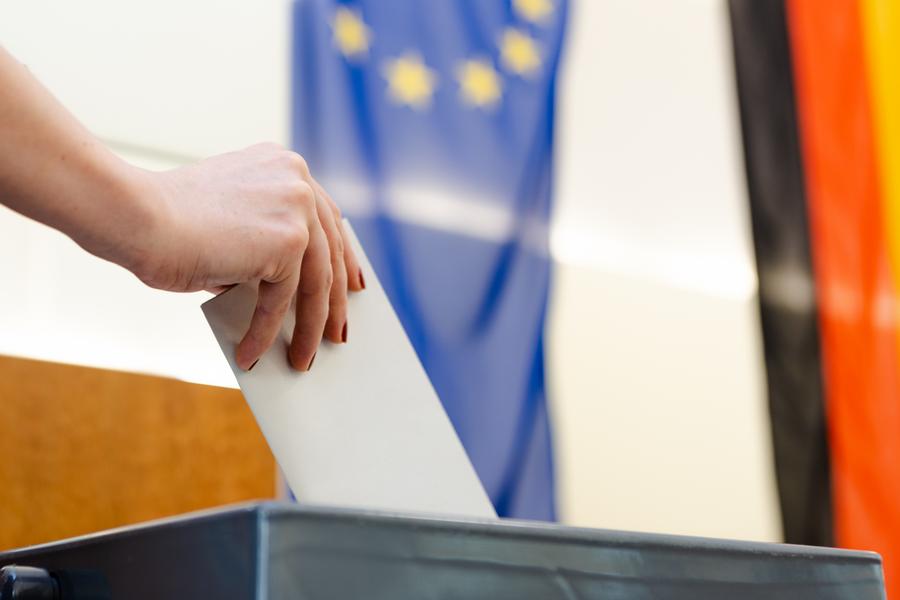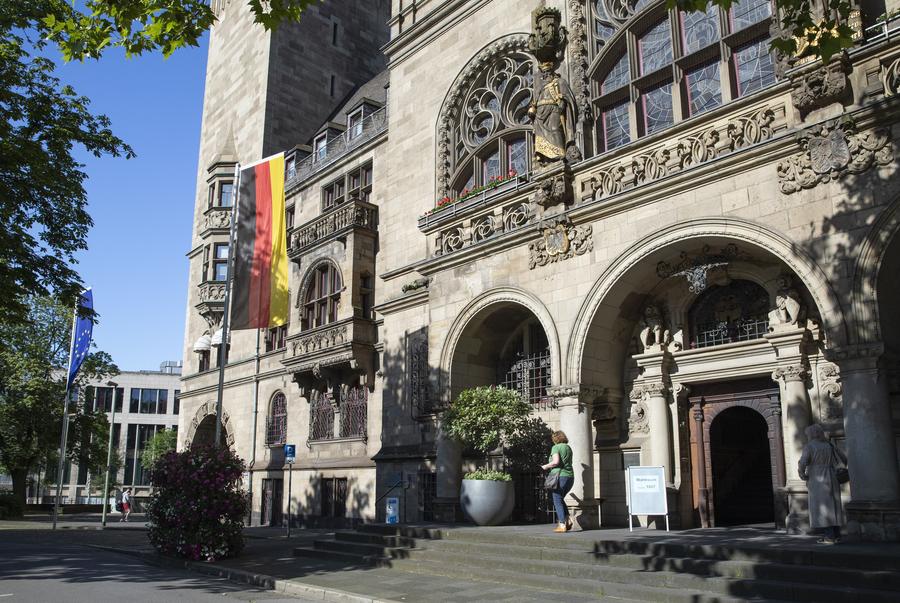Germany's Scholz faces growing pressure after EU election defeat

A woman casts her vote for the European Parliament elections at a polling station in Berlin, capital of Germany, June 9, 2024. (Photo by Inaki Esnaola/Xinhua)
Scholz's Social Democratic Party (SPD) became only the third strongest party with 13.9 percent of votes. The Greens, also a member of the German government, plummeted to a vote share of 11.9 percent.
BERLIN, June 10 (Xinhua) -- Political pressure on German Chancellor Olaf Scholz is growing after the three parties of the current coalition government suffered heavy losses in the European Union (EU) elections on Sunday. As in other European countries, right-wing parties made significant gains.
Scholz's Social Democratic Party (SPD) became only the third strongest party with 13.9 percent of votes. The Greens, also a member of the German government, plummeted to a vote share of 11.9 percent, a dramatic drop from their record result of 20.5 percent from the last European elections back in 2019.
The result is a "bitter defeat," said SPD leader Lars Klingbeil. The party will now analyze how this has happened. "I think it is crystal clear that things have to change," Klingbeil said.

A voter casts her vote at a polling station for the European Parliament elections in Duisburg, Germany, June 9, 2024. (Xinhua/Zhang Fan)
Conservative parties Christian Democratic Union (CDU) and Christian Social Union (CSU) received 30 percent of votes in the election, making the union currently the strongest party in Germany.
CDU leader Friedrich Merz called on the government to immediately change course in the interests of the country. The results of the EU election were "the very last warning" for the coalition before the national elections for the lower house of parliament Bundestag next year, he said.
The German government had lost support among the population, said CSU leader Markus Soeder in an interview with RTL and n-tv, calling for "new elections and a fresh start for our country as soon as possible."
Unlike French President Emmanuel Macron, who reacted immediately after his party suffered heavy losses and announced new elections to the National Assembly in as early as June, Scholz seems determined to hold onto power.
Despite poor performance from the governing parties, new elections have not been considered "for a second," said government spokesperson Steffen Hebestreit. The plan is to stick to the scheduled election in autumn 2025.

A voter walks out of a polling station at the city hall for the European Parliament elections in Duisburg, Germany, June 9, 2024. (Xinhua/Zhang Fan)
Right-wing Alternative for Germany (AfD), which has also been making gains in the polls since last year, was also a winner of Sunday evening, ranking second with 15.9 percent of votes cast. Voters' dissatisfaction with the government was a major cause to the rise of the AfD.
The party's election result was "historic," said Tino Chrupalla, one of the two leaders of the AfD. With a view to contest the three upcoming state elections in eastern Germany in September, Chrupalla stressed that the AfD was "the strongest force in the east in this election."
The AfD believes that this vote is a vote of no confidence in the current coalition. Germany "voted out" Scholz and the three governing parties, AfD leader Alice Weidel claimed on X.
Photos
Related Stories
Copyright © 2024 People's Daily Online. All Rights Reserved.









